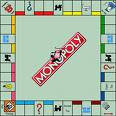 What does sustainable fashion really look like? If pushed, most of us will admit that reducing the carbon impact of our wardrobes is going to mean more than buying the odd organic t-shirt here and there. True sustainable fashion equals buying less stuff and keeping what we do have for longer. For fashion addicts, it’s not an easy message to swallow.
What does sustainable fashion really look like? If pushed, most of us will admit that reducing the carbon impact of our wardrobes is going to mean more than buying the odd organic t-shirt here and there. True sustainable fashion equals buying less stuff and keeping what we do have for longer. For fashion addicts, it’s not an easy message to swallow.The Uniform Project is a one woman campaign to marry style with sustainability. Sheena Matheiken has pledged the wear the same dress for a whole year. The only thing that changes each day is the way she accessories the dress with second hand or handmade items, which supporters can donate. You can follow her progress and see what she’s conjured up on a daily basis (pictured is today’s ensemble - Day 53 of the project). Being a New York hipster with access to lots of funky accessories (and a dress that was especially made for the campaign by a designer chum), she’s not scrubbing up too badly at all.
The project is also a fundraiser the Akanksha Foundation, a grassroots education movement in India. At the end of the year, all contributions from supporters will go toward Akanksha’s School Project to fund uniforms and other educational expenses for slum children in India.
Hygiene freaks, fear not, there are seven identical copies of the dress to be worn in rotation…





